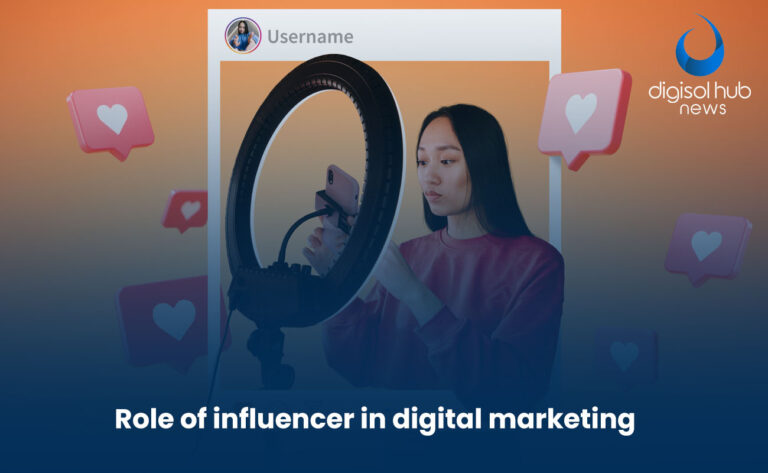
What is Influencer Marketing
In today’s digital age, marketing strategies have undergone a massive transformation. Traditional advertising methods are slowly making way for more engaging and impactful approaches. One such approach is influencer marketing. This article delves into the ever-evolving world of digital marketing and the pivotal role that influencers play in it.
The Changing Landscape of Digital Marketing
The digital marketing landscape has evolved rapidly over the past decade. With the growth of social media and online platforms, businesses have found new and creative ways to connect with their target audience. Gone are the days of relying solely on banner ads and pop-ups. Instead, brands are turning to influencers to spread their message effectively.
Understanding Influencer Marketing
What is influencer marketing? Influencer marketing is a strategic collaboration between a brand and a social media influencer. It involves the influencer promoting the brand’s products or services to their audience.
The Impact of Social Media
The rise of social media:
With billions of users on platforms like Instagram, Facebook, TikTok, and YouTube, social media has become the hub of digital marketing. Influencers leverage their large following and credibility to endorse products, thus boosting a brand’s reach.
Types of Influencers
1. Micro-Influencers:
These influencers have a relatively small, but highly engaged, audience within a specific niche. They can create authentic connections with their followers.
2. Macro-Influencers:
Macro-influencers have a broader reach and typically focus on a wider range of topics. They can help brands reach a larger but less targeted audience.
3. Celebrity Influencers:
Celebrities with substantial social media followings have the power to influence a massive audience.
Benefits of Influencer Marketing
Influencer marketing offers several advantages for businesses:
1. Increased Credibility: When an influencer endorses a product or service, it lends credibility to the brand.
2. Targeted Marketing: Choosing the right influencer allows brands to reach a specific demographic.
3. High Engagement: Influencer content often garners high engagement, which can boost a brand’s visibility.
The Influencer-Brand Partnership
Collaborations between influencers and brands are essential for successful influencer marketing campaigns. This partnership involves:
Content Creation
Influencers are responsible for creating engaging and authentic content that showcases the brand’s products or services in a natural and relatable manner.
Storytelling
Influencers are skilled at weaving compelling narratives around a brand, making it more appealing to their followers.
Promotion
Influencers share the content across their social media platforms, ensuring it reaches a vast and engaged audience.
Measuring Success
Influencer marketing success can be measured through various metrics, including:
Engagement Metrics
These include likes, comments, shares, and other interactions on the influencer’s posts.
Click-Through Rate (CTR)
CTR measures how many users clicked on the link provided by the influencer to the brand’s website.
Conversion Rate
The ultimate goal is to convert engagement into actual sales or leads.
The Future of Influencer Marketing
The role of influencers in digital marketing is expected to continue to evolve. Brands are likely to rely even more on influencers as a bridge to their audience.
Conclusion
Influencer marketing has become an integral part of digital marketing strategies. The unique ability of influencers to connect with their audience on a personal level and create authentic, engaging content has transformed the way brands reach their target market. As the digital landscape continues to evolve, influencer marketing is expected to become even more significant in the marketing world.
Set your marketing goals and KPI’s. Market planning includes the goals behind the campaign. It helps you shape a consistent strategy throughout your campaign, and it will also give you an idea about the means to measure your success.
Here are some goals that include for influencer marketing strategy include the following:
- Brand Awareness
- Building Brand Identity
- Audience engagement
- Lead Generation
- Sales
- Customer Loyalty
- Link Building
Once the objective of the influencer marketing has been decided, then the next step is to determine influencer marketing strategy according to your brand niche and intent.
- Gifting: Instagram Influencer will get a free product and will share his review after using the product.
- Sponsored Content: The influencer’s blog or social channel platform will be used on which your product will be featured. The influencer will create content, and the amount will be charged in return.
- Social Media: Influencer will mention your brand, share your content, or post about you.
- Contests and Giveaways: Running a contest and asking an influencer to share your giveaway event with their followers.
- Influencer Takeover: Collaborating with the influencer and allowing them to take control of your social media accounts for a set amount of time.
- Affiliates: Providing a unique code to influencers and setting a percentage for each sale.
